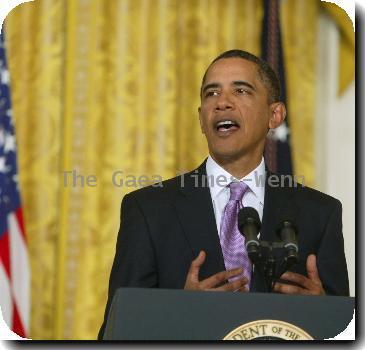NATO, Afghan troops capture more Taliban leaders but violence continues unabated
By Kay Johnson, APFriday, July 9, 2010
NATO captures Taliban leaders; violence unaffected
KABUL, Afghanistan — International and Afghan troops captured a Taliban commander responsible for bringing Pakistani militants across the border to launch attacks, the alliance said Friday as U.S.-led forces ratchet up their pursuit of insurgent leaders.
The coalition is touting a string of successes in capturing or killing dozens of key militant leaders since April, but so far it has not managed to reduce violent insurgent attacks across the country.
Two NATO service members died Friday in separate roadside bombs in the south, and an explosion ripped into a convoy of NATO and Afghan forces in an eastern province, killing one civilian and wounding nine others. Last month was the most deadly of the nearly 9-year-old war for international troops, with 103 foreign forces killed.
President Barack Obama has sent 30,000 more American troops to Afghanistan to carry out the war’s counterinsurgency strategy, which focuses on securing the Afghan population and reversing Taliban gains.
While international forces patrol new areas to try to protect the population, their comrades in special forces, working with elite Afghan commandos, have been staging raids almost every night trying to weaken the insurgents’ operational capacity.
On Tuesday, coalition and Afghan special forces arrested a Taliban commander in the eastern province of Nangarhar, NATO said Friday.
The alliance said the man — whom it would not identify for security reasons — facilitated a recent influx of operatives for Lashkar-e-Taiba, the Pakistani militia accused in the 2008 Mumbai terrorist attacks and suspected in a string of more recent attacks in Afghanistan.
“Capturing this commander degrades the Taliban’s operational and facilitation capabilities,” said Col. William Maxwell, the director of the NATO-led international forces’ Combined Joint Operations.
Joint Afghan-international raids have led to the arrest of more than 100 Taliban figures since April, NATO says. In the past two weeks alone, at least 23 mid- and senior-level insurgent leaders and 217 lower-level fighters have been captured or killed, it says.
“We’ve stepped up operations over the last six months,” said NATO spokesman Col. Wayne Shanks. “What this is, is directly targeting the insurgent network, their leadership, their facilitators who bring in either weapons, supplies, money, resources.”
The campaign against the Taliban leadership echoes a strategy used successfully against both Sunni and Shiite insurgents in Iraq.
One senior Taliban commander recently killed was Ghulam Sakhi, who NATO said was a bomb-making specialist in Logar province who was also behind kidnapping plots, including the abduction and killing of the provincial security chief.
Afghan and coalition forces surrounded a compound he was sleeping in on June 25 and used a bullhorn to urge him to surrender. According to NATO, Sakhi emerged dressed as a woman and fired a pistol at the forces. He was shot and killed.
In the northern province of Kunduz, combined forces killed a Taliban weapons expert called Usman on June 27. NATO said he was a senior insurgent figure who also helped bring in fighters from Pakistan.
However, capturing and killing large numbers of militants has yet to translate into reducing the violence that has been spiraling in Afghanistan, with suicide attacks and roadside bombs exploding across the country.
On Friday, two NATO service members were killed in the volatile south after being wounded by roadside bomb explosions, the coalition said in a statement. It said one of those killed was American, but did not give the nationality of the other or provide any details.
A suicide car bomb hit a NATO convoy Friday in the eastern province of Nangarhar, provincial spokesman Ahmad Zaiya Abdulzai said. One civilian died and nine were wounded in the attack near a bridge outside Jalalabad, the provincial capital.
Photos from the scene show a coalition armored vehicle in flames, but NATO said no casualties among its troops were reported. A coalition spokeswoman said she had been told the convoy hit a homemade bomb.
In Ghazni province in the east, gunmen assassinated a prosecutor Friday morning. The coalition said that Khwajai Omari district prosecutor Mohammad Riza was killed outside his home, the latest targeted killing of Afghan officials, apparently by insurgents seeking to sow fear and undermine confidence in President Hamid Karzai’s government.
The Afghan Taliban has taunted the U.S. for its failure to stop attacks, saying in a message posted Thursday on its website that the U.S. faces “the most catastrophic military setback in its history” in Afghanistan and comparing the fight to the Vietnam War.
Shanks said the effect of the capture operations may take time to show up, and stressed that capturing insurgents must be combined with the foreign and Afghan forces increasing security to win over the support of residents.
“It’s a double-pronged approach,” Shanks said. “When you combine them into a comprehensive approach, you will start to see a shifting of the momentum and following that there will be a reduction in the violence.”
Tags: Afghanistan, As-afghanistan, Asia, Barack Obama, Bombings, Central Asia, Improvised Explosives, Kabul, North America, South Asia, United States, Violent Crime

